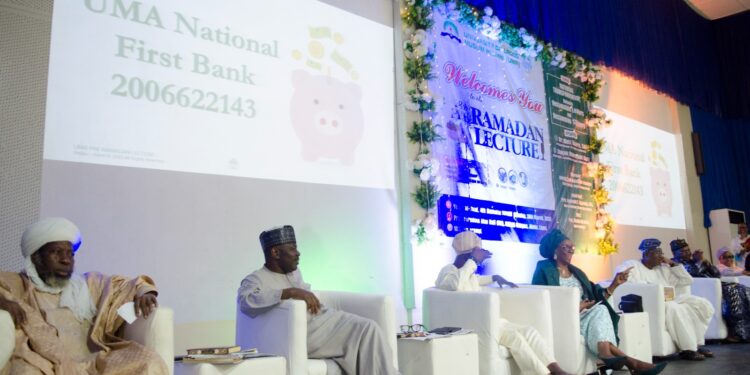THE University of Lagos Muslim Alumni (UMA) held its 28th pre-Ramadan lecture on Sunday, March 26, with religious and political scholars in attendance to brainstorm on national transformation.
The event, tagged ‘National Transformation: Between Responsible Leaders and Responsive Citizenry’, was held at Professor Nurudeen Alao Hall, UNILAG, Akoka, Lagos.
The UMA president, Professor Khalid Adekoya, explained that the pre-Ramadan lecture took place during Ramadan due to the rescheduling of the governorship and House of Assembly elections by the Independent National Electoral Commission (INEC).
Speaking to the theme, a Senior Advocate of Nigeria, Muiz Banire, described leadership in Islam as a trust (amaanah in Arabic), saying every leader must be accountable to Allah and then the people.
He said: “In Islam, a leader must, first and foremost, be accountable to Allah, recognising that there are certain parameters Allah has set for leadership. Leadership in Islam is amaanah. You must not breach it at any point in time. Then, you must be accountable to the people and yourself.”
Banire also advocated the promotion of the rule of law without fear or favour and urged leaders to ensure that their governance is participatory.
He said: “You must equally ensure that there is justice in the land. You must ensure, as a transformational leader, that the resources of the country are used in the best manner. Your governance, civil service must be efficient and effective.
“There must be equity and inclusiveness. You must see criticisms as a feedback mechanism, not as condemnation. These are some of the essentials that we said anyone who wants to transform society must have.”
Banire called on followers to obey their leaders and constituted authorities.
According to him, “We must obey our leaders according to the Prophet (SAW), but the obedience is qualified. We obey them to the extent that they do not ask us to do anything that contravenes the Shari’ah. If it is going to contravene the Shari’ah, at that point, we depart.
“Again, we owe them the duty of counsel. We must draw their attention to things they are doing wrong. We owe them a duty of accountability and probity. We also have a duty not to only advise them, but also to guide them always; and most importantly, pray for them.”
He also encouraged youths to occupy leadership positions, saying that they have the energy and knowledge to rule.
The second guest speaker, Sheikh Dhikrullah Shafi’i, who is the Grand Mufti of the Conference of Islamic Organisation (CIO), charged leaders to run inclusive administrations and listen to the yearnings of the people.
The Islamic scholar noted that when a policy does not go well with the people, leaders have a responsibility to rethink it.
Sheikh Shafi’i also emphasised the need for leaders to always keep firm on justice.
He said: “Everyone must be brought to justice and there should be equality before the law. Also, our leaders must invest in security, education, healthcare and other sectors that improve the welfare of the people.
“The major problem we are facing as a society is that there are many youths out there idle. Government must engage these young people meaningfully and provide them employment and empowerment opportunities.”
On his part, former Minister of Defence, Senator Musiliu Obanikoro, warned against blind followership, saying that it is high time Nigerians started challenging their leaders.
In an interview with newsmen on the sideline of the programme, Obanikoro said: “We must be able to challenge our leaders and not treat them as gods. Once somebody is in public office, you see everybody else around behaving as if they were on a slave plantation. That is not the way it is supposed to be.”
Also speaking with newsmen, the senator-elect for Ogun Central, Alhaji Shuaib Salisu, emphasised that the leadership question must not be answered by the political class alone.
According to him, “reducing the burden of leadership to the political class alone will prevent us from what we require as a country to transform.”
The lecture was attended by distinguished citizens who are alumni of the institution.
UMA was formed over 30 years ago with a vision to create an impact on UNILAG and the society at large.
[ad_2]







